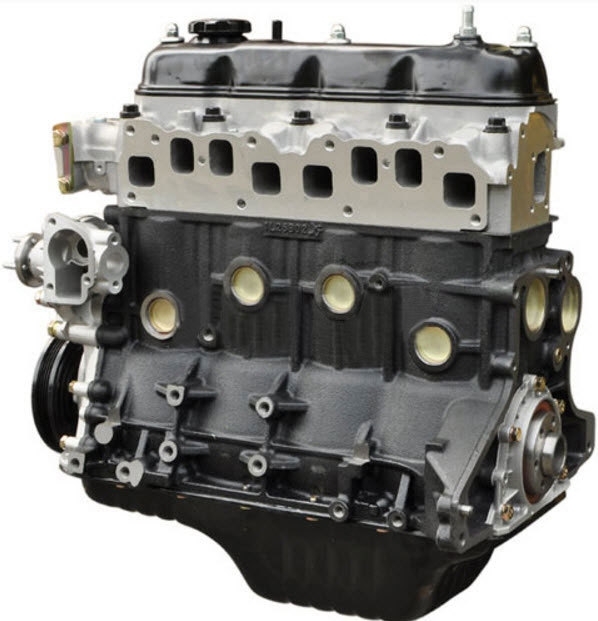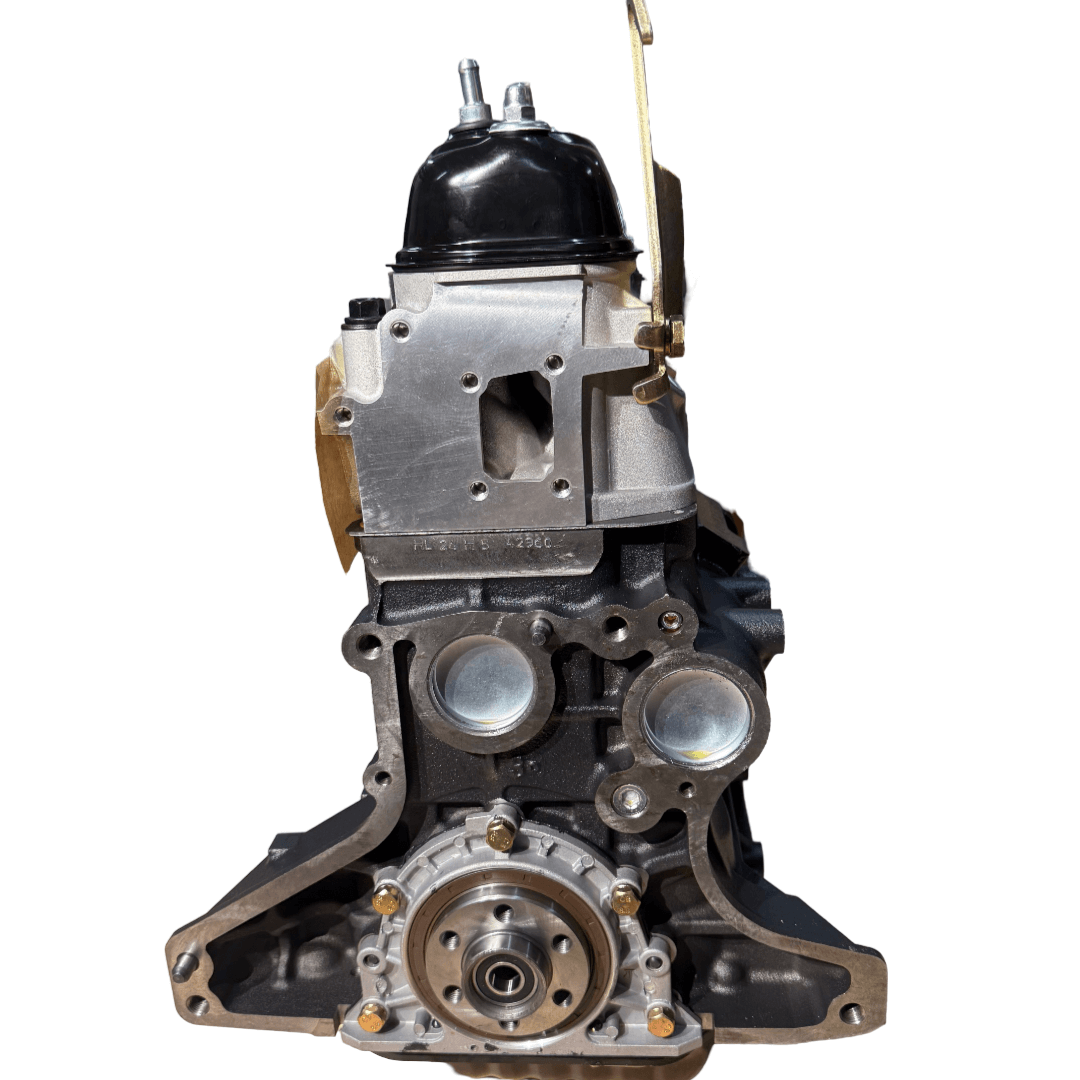Exploring the Numerous Kinds Of Engine: Which One Fits Your Demands?
In the quest to establish the most appropriate engine kind for your specific requirements, it is vital to review the unique characteristics and advantages of each choice available. Inner combustion engines proceed to control because of their reliability, while electric engines are acquiring traction for their sustainability. Hybrid engines use a versatile compromise, and diesel motor stick out for their power popular applications. Furthermore, alternative fuel engines existing cutting-edge solutions, albeit with particular limitations. Understanding your top priorities will be crucial in this decision-making procedure, bring about an expedition of elements that may affect your option.

Interior Combustion Engines
Internal combustion engines (ICEs) are the foundation of contemporary transportation, powering a substantial variety of automobiles from cars to planes. These engines operate on the principle of transforming gas into power through a series of regulated surges within a combustion chamber. The most typical kinds of ICEs consist of gas engines, diesel motor, and rotary engines, each designed to meet certain efficiency and effectiveness requirements.
Fuel engines typically utilize stimulate ignition, while diesel motor depend on compression ignition, leading to unique differences in gas performance and power result (4y engine). Rotating engines, or Wankel engines, offer a compact design and smooth procedure, but are less generally made use of in mainstream applications
ICEs have gone through significant improvements in innovation, consisting of the intro of turbocharging and gas shot systems, which boost overall effectiveness and performance. Regardless of their performance improvements, ICEs encounter boosting analysis due to their ecological influence, particularly regarding greenhouse gas emissions.
Electric Engines
As issues concerning environmental sustainability and fossil gas dependency expand, electric engines have arised as a compelling alternative to internal combustion engines. These engines make use of electric motors powered by batteries or gas cells, giving a cleaner and more effective ways of propulsion.
Among the primary benefits of electrical engines is their decreased discharges. Unlike conventional engines that burn nonrenewable fuel sources, electrical engines produce absolutely no tailpipe discharges, considerably lowering air contamination and contributing to boosted public health and wellness. Furthermore, the effectiveness of electric motors commonly surpasses that of internal combustion engines, transforming a higher proportion of energy from the source of power into functional energy for activity.
Electric engines are also remarkable for their peaceful operation, making them optimal for urban atmospheres. 4y engine. The simplicity of their design results in less relocating components, which can cause decreased maintenance expenses and boosted reliability gradually
Nevertheless, difficulties continue to be, consisting of battery production impacts, billing facilities, and range restrictions. Despite these obstacles, the growing investment in electrical vehicle technology and renewable power sources factors towards a promising future for electric engines, placed to play a critical function in the transition toward lasting transport.
Crossbreed Engines
Blending the advantages of both standard and electrical inner combustion engines, hybrid engines stand for a flexible service in the quest for effective and sustainable transport. These engines incorporate a fuel or diesel engine with an electrical motor, permitting improved gas performance and lowered exhausts compared to conventional cars.
Hybrid engines run in several settings, using the electric motor for low-speed driving and the internal combustion engine for higher speeds or when more power is required. This dynamic procedure not only enhances gas economic climate but additionally contributes to a smoother driving experience. Regenerative braking is another crucial feature, catching energy commonly lost during stopping and rerouting it to recharge the battery.

As consumers increasingly prioritize eco-friendliness, hybrid engines stick out as a sensible choice, offering an efficient equilibrium of efficiency, effectiveness, and ecological obligation. This adaptability makes them appropriate for urban commuting and long-distance travel alike.
Diesel Engines
Effectiveness and power are hallmarks of diesel engines, which have long been preferred for their toughness and gas economic climate. These engines operate the principle of compression ignition, where air is pressed to a heat prior to fuel is injected, igniting it without the requirement for trigger plugs. This process allows diesel motor to accomplish greater thermal efficiency contrasted to fuel engines, converting right into better fuel mileage and reduced co2 discharges.
Diesel motor are specifically fit for durable applications such as trucks, buses, and commercial machinery, where torque and resilience are critical. Their design typically includes stronger parts to endure the greater stress created throughout operation, causing longer life span and decreased upkeep costs.

Different Gas Engines
While diesel engines have long dominated the landscape of sturdy source of power, different fuel engines are getting traction as practical options for a much more lasting future. These engines utilize a range of fuels, such as pressed all-natural gas (CNG), gas, hydrogen, and ethanol, intending to minimize greenhouse gas discharges and dependence on fossil fuels.
One pop over to these guys significant advantage of alternative fuel engines is their possible to lower carbon footprints. CNG engines send out less contaminants contrasted to typical diesel engines, making them suitable for city transit systems and fleets seeking to enhance air high quality. Ethanol, stemmed from biomass, not just reduces emissions however additionally supports farming economic climates.
Hydrogen gas cells stand for an advanced growth in this world, providing zero-emission power with a chain reaction the original source in between hydrogen and oxygen. Challenges such as infrastructure growth and production prices continue to be obstacles to widespread adoption.
Verdict
To conclude, choosing the ideal engine kind demands mindful factor to consider of details requirements and preferences. Internal combustion engines provide integrity, while electric engines prioritize sustainability and minimized maintenance. Hybrid engines combine the benefits of both, boosting performance, whereas diesel motor supply superior power and torque for durable applications. Different fuel engines present environmentally friendly alternatives, albeit with potential facilities obstacles. Inevitably, an extensive evaluation of driving routines and environmental values will certainly assist in an educated choice concerning engine selection.
Hybrid engines use a flexible concession, and diesel engines stand out for their power in requiring applications. The most usual kinds of ICEs consist of gas engines, diesel engines, and rotating engines, each created to satisfy details performance and performance demands.
Unlike conventional engines that burn fossil gas, electric engines generate absolutely no tailpipe discharges, dramatically lowering air pollution and contributing to enhanced public health.Hybrid engines operate in a number see here of modes, making use of the electric motor for low-speed driving and the interior combustion engine for higher rates or when more power is needed. Hybrid engines incorporate the benefits of both, improving efficiency, whereas diesel engines give superior power and torque for sturdy applications.